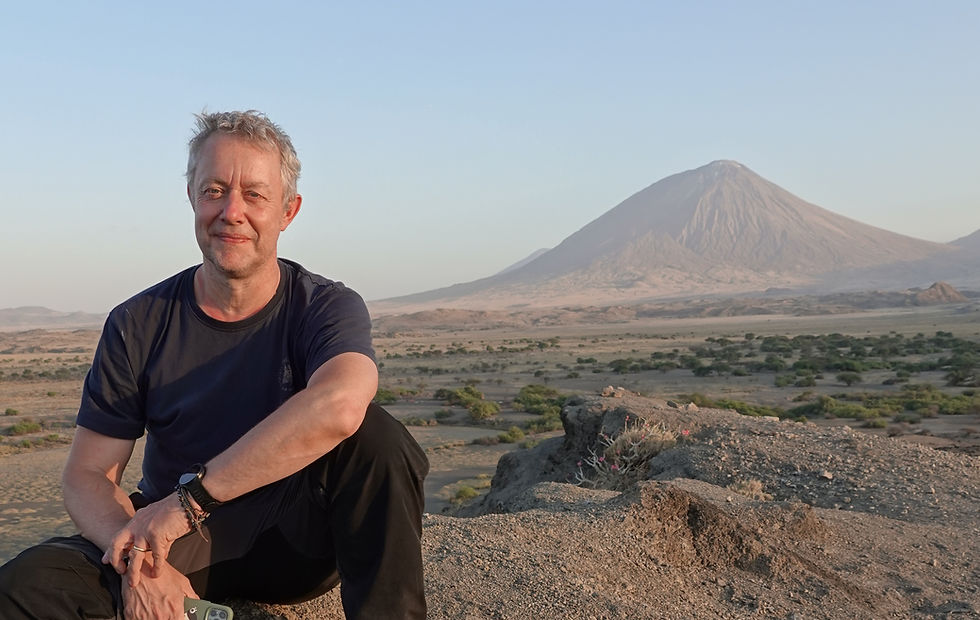4 keys to become an authentic leader
- Jan 11, 2018
- 4 min read
Updated: Jan 29, 2020

Henry* is a senior executive who came to me when he failed to get an expected promotion after he led a successful turnaround (see my last blog). Together, we continued to explore some key concepts which, when put into practice, helped Henry increase his ability to be the leader he wanted to be. All four start with self-observation and then lead to actions based on those observations.
1. Language generates reality
The words we use count. When we make a judgment aloud or in our own minds, we are opening and closing possibilities. For instance, when we speak of someone as being trustworthy or we speak of a new app as being useful, we are creating reality and shaping, intentionally or not, the lens through which we will view that person or thing going forward.
Once Henry became aware of this and began to earnestly listen to his thoughts, he was able to begin exploring the language that might be holding him back. He began to see that he had unwittingly allowed the idea "my boss may have lacked sincerity when he promised me the promotion" to grow into the much larger concept of "you can't trust anyone". Once he realised this, the door was open for him to change his words, thereby creating more authentic relationships with his colleagues.
He went on to find that examining his language and its underlying assumptions served him well in all his relationships, both professional and personal.
2. Each emotion creates a predisposition to act in a certain way
Emotions create actions. This is so obvious and yet most of us act on our emotions without any consideration for their correctness or for whether the actions based on those emotions will serve us well. Henry was able to see that he had been coming from a dominant mood of resentment and the actions that grew from that emotion were not helping him to be the leader he wanted to be.
Henry realised that he needed to drop the resentment and cultivate a sense of peace. One surefire way to cultivate peace is to cultivate gratitude. There is nothing like a regular gratitude practice to change one's overall way of being in this world. To do this, Henry started re-examining his past and finding ways in which his experiences had benefited him – even if that gratitude was for what they had taught him. He explored the possibility of declaring his past complete and shutting down the inner dialogue that had been haunting him. He combined cultivating gratitude with making a conscious effort to generate more peaceful moments with his family.
3. Physical sensation is a call to action
Our physical sensations and our body dispositions (the way we hold ourselves) provide valuable insights into the behaviours that are available to us. Once we have observed these, we can explore our sensations and dispositions to create the emotions and behaviours and therefore the futures we desire.
For Henry, it quickly became obvious that opening his chest and taking long, deep breaths would soften the tension and allow him to act from a place of calm. He began regularly scanning his body and noticing that he held tension in all sorts of places he had been unaware of. He chose to consciously let these tensions go and focus on how his body felt at its most relaxed and calm. The physical calmness created space not only in his body but also in his mind. This dramatically increased the range of behaviours available to him.
4. Practice, Practice, Practice!
Learning only occurs through practice and repetition. Now that Henry has chosen to work on the roots of his leadership issues, he has to practice his new "way of being" and allow it to take root. By practicing modifying his physical self, he can develop the muscle memory required to make the physical changes he seeks. By modifying his thoughts and their accompanying language, he can create new neural pathways and literally reshape his brain. Exciting recent research by neuroscientists has proven the concept of neural plasticity and the ability of humans to change.
For Henry, along with the rigorous self-observation practices, the change began with a verbal declaration. Henry's declaration – "I am a legitimate leader who makes decisions and takes actions from a place of calm" – was the first step in creating his new future.
It became a mantra to centre himself when life's ups and downs threatened the equanimity he sought. Henry dedicated himself to daily activities to reconnect with a more peaceful state of mind and found that alternating long walks in the forest with playing games with his children worked for him. He also consciously and regularly paid attention to his body, listening to its messages, and adjusting it accordingly.
For Henry, as for all of us, being an authentic and impactful leader requires the same commitment and discipline as that required to be an accomplished musician or ballet dancer. It is a life journey, a path without a finish line, towards mastery. The path requires regular attention, strong self-awareness and a lifelong disciplined practice.
Within two months of beginning his practice, Henry could see substantive changes and an increasing ability to be the leader he wants to be. He knows that he must keep up his practice in order to continue on the path he has chosen.
*Henry (not his real name) gave me full permission to share his story with my readers. Thanks, Henry!
And if you're interested in learning more about accessing your own leadership abilities, here are some useful resources:
View this video from Michael Merzenich: Growing evidence of brain plasticity
View this video from Lara Boyd: After watching this, your brain will not be the same at tedx
View this inspiring video from David Steindl-Rast: Want to be Happy? Be grateful



Comments